World Championships: Dumoulin pays a toll for long 2016 season
Dutchman feels road race should have had evening finale
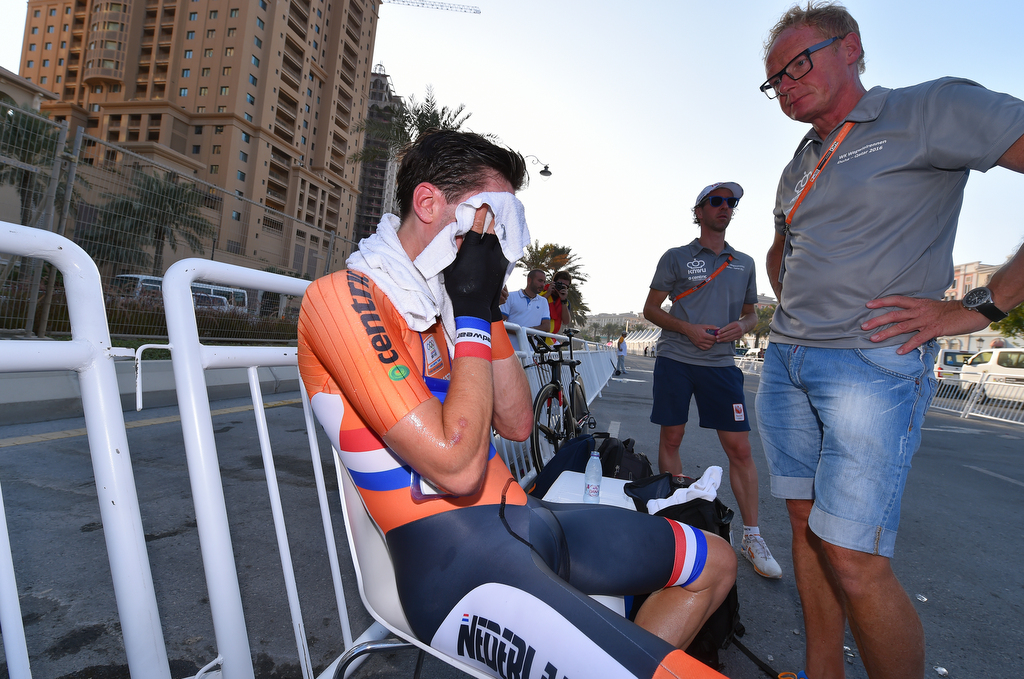
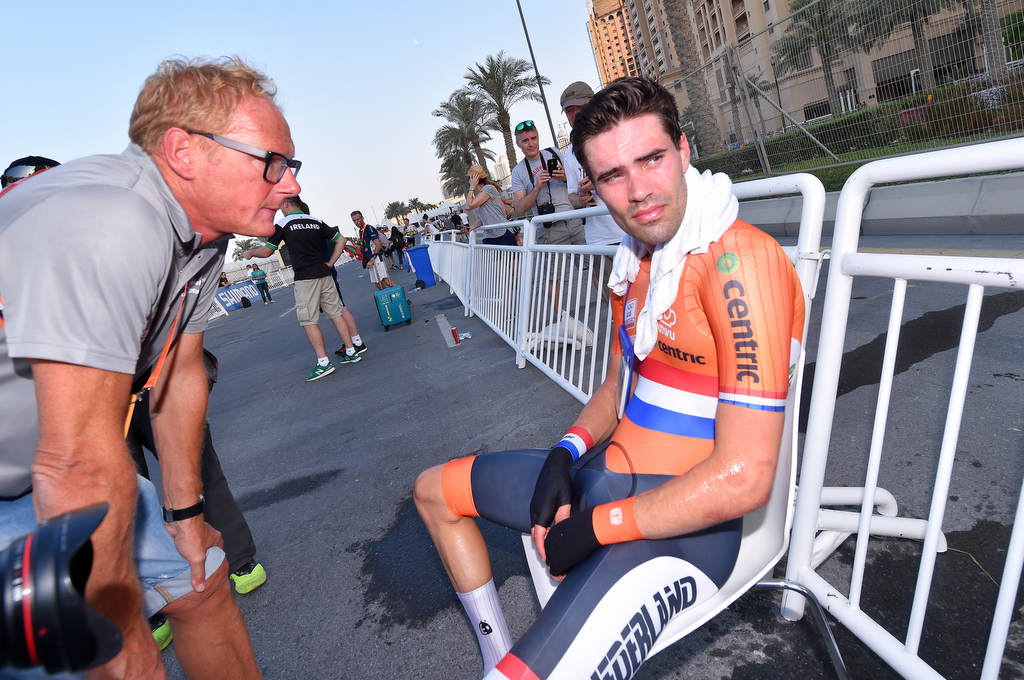
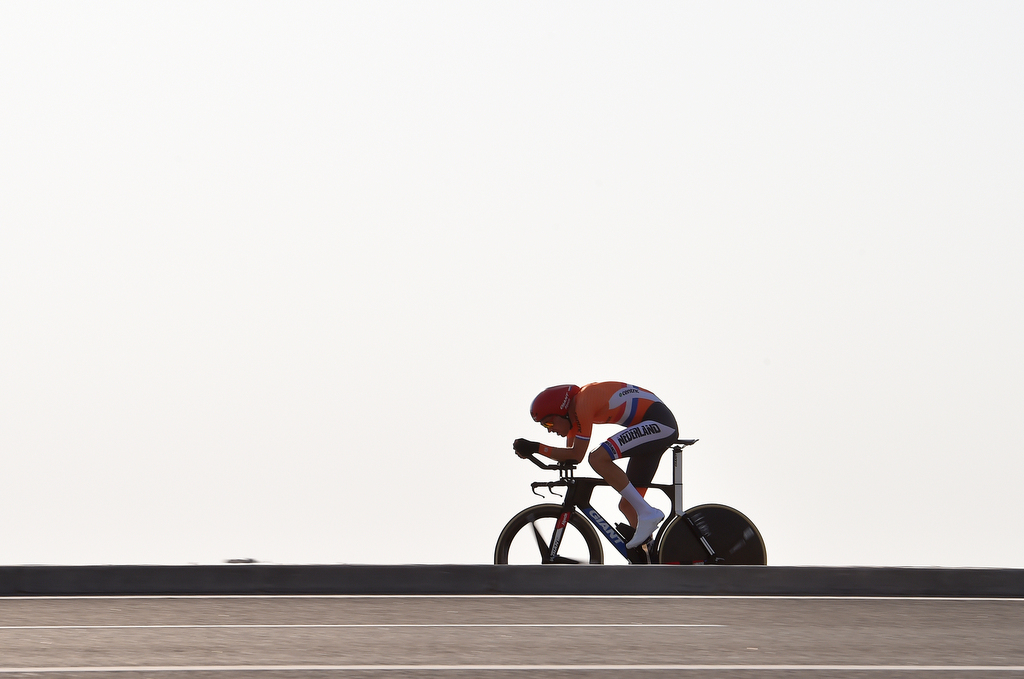
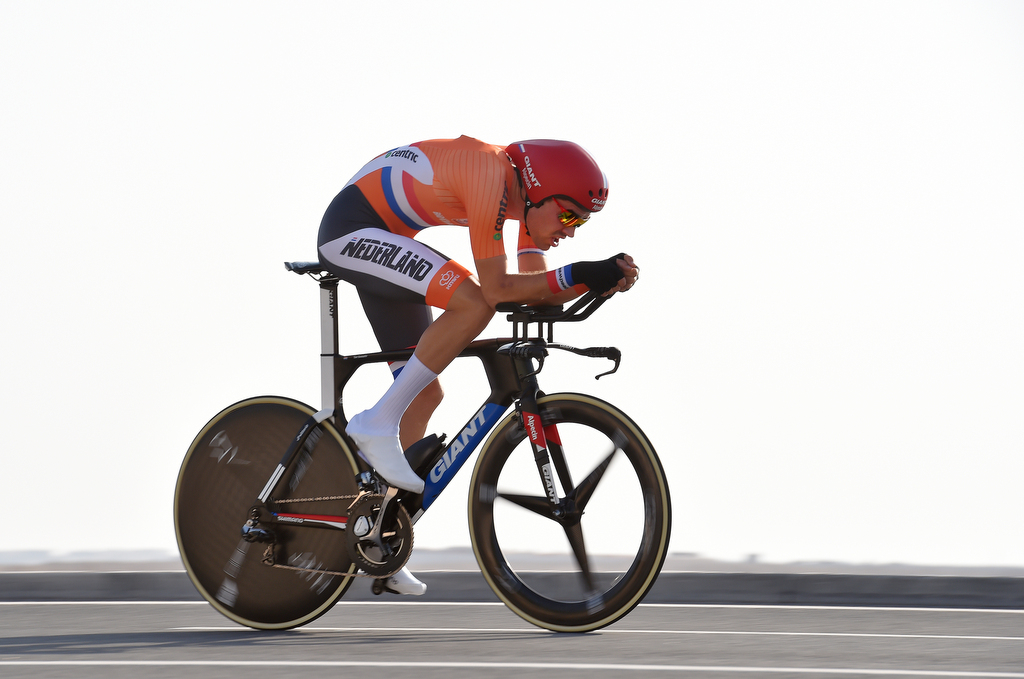
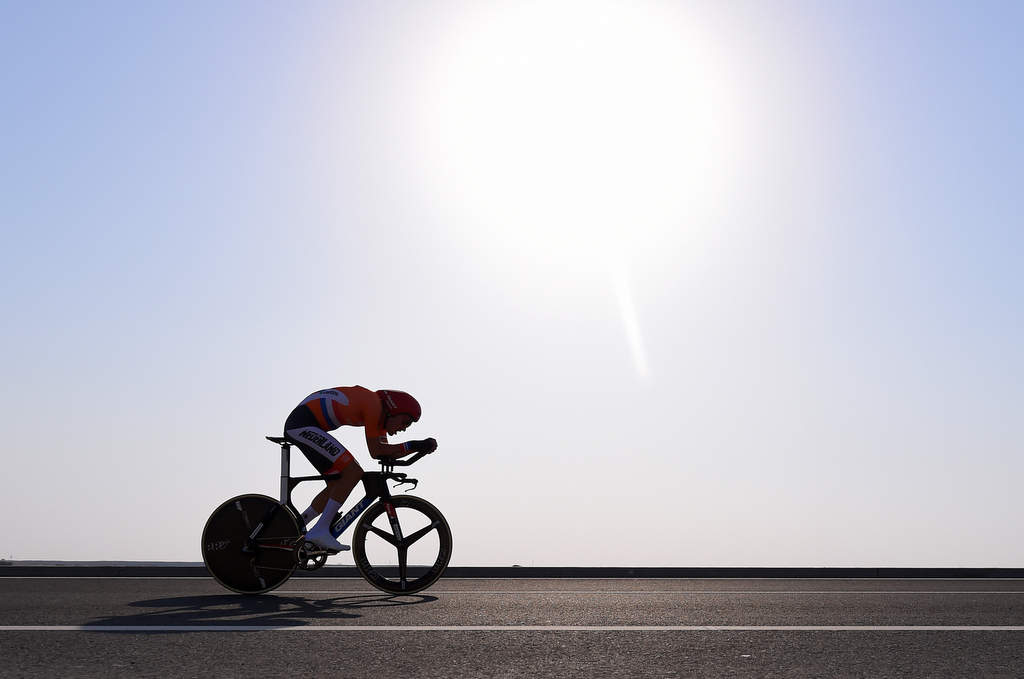
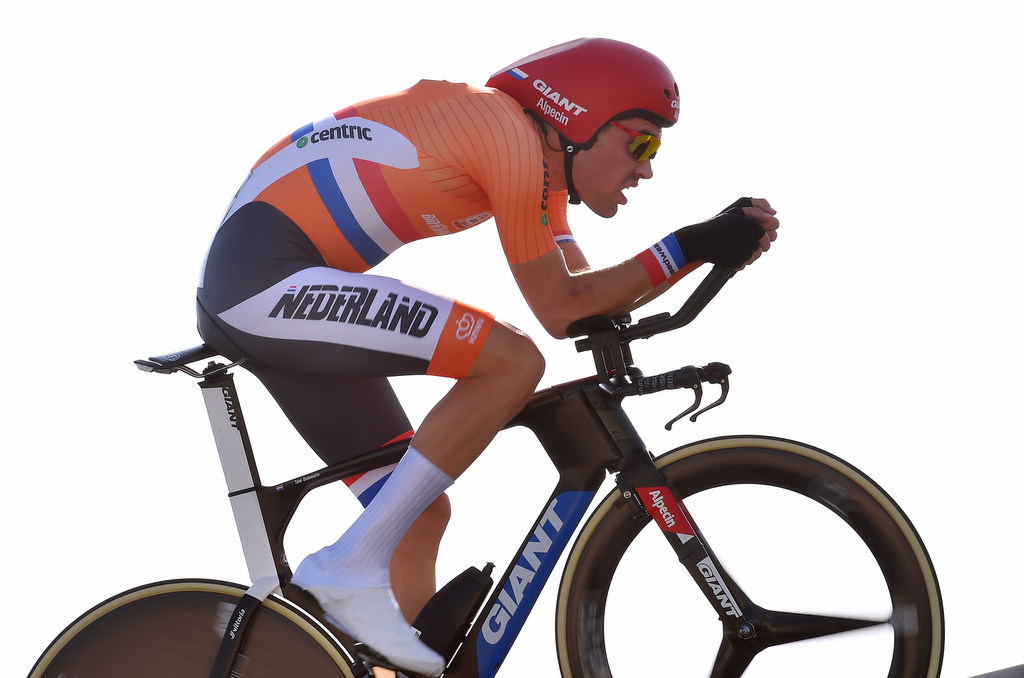
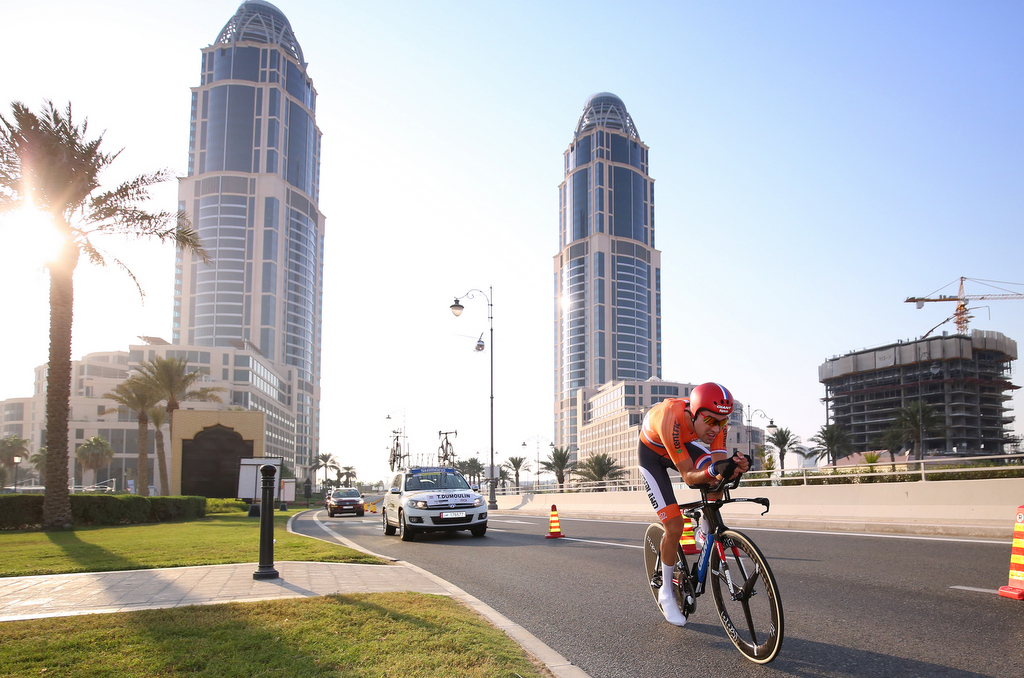
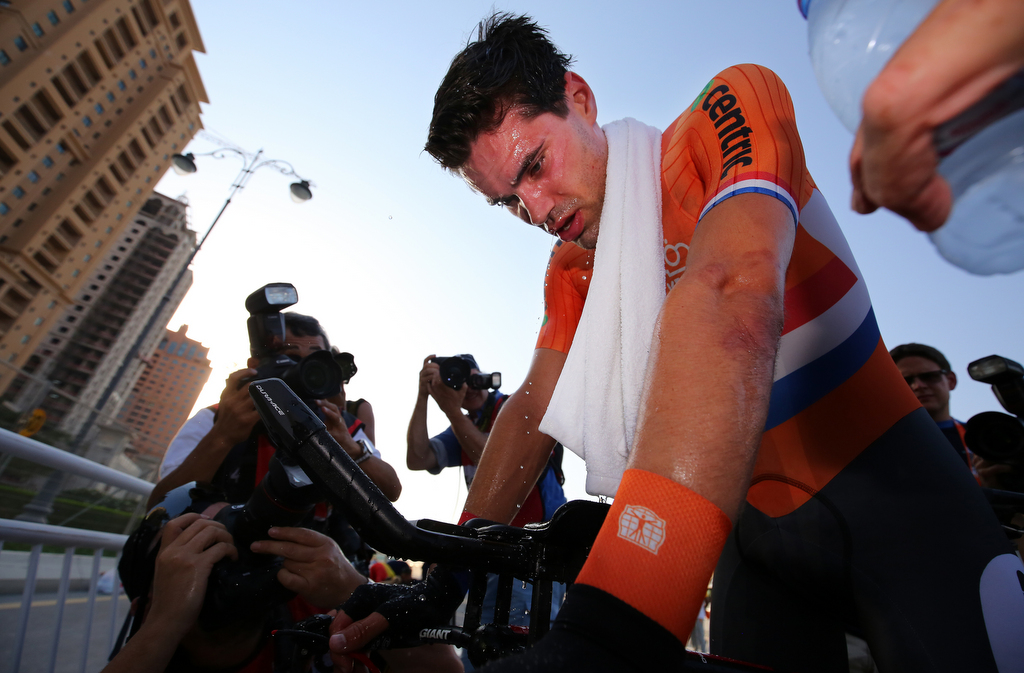
Tom Dumoulin has sparkled against some stirring backdrops this season, from the rosy-hued streets of Apeldoorn in May to the headlands and hills of Rio de Janeiro in August, by way of the untamed Apennines and the mighty passes of the Pyrenees and Alps.
It was perhaps fitting, then, that his arduous 2016 campaign finally ran out of steam on a long and rather lonesome road to nowhere outside Doha, with only flat, empty expanses and a punishing early Autumn sun for company.
Dumoulin could only manage 11th place in the time trial at the UCI Road World Championships, simply unable to muster a challenge to eventual winner Tony Martin (Etixx-QuickStep). Already 22 seconds down at the first time check, the Dutchman eventually came in 2:01 down.
"I knew in the last few weeks my shape wasn't very good but I still had some good days, and on Sunday in the team time trial I felt pretty good," Dumoulin said. "I was hoping for a good day today but it turned out to be a bad one, and when your shape isn't good, you suffer even more with the heat. It's a snowball effect. Eventually it turned out to be really bad.
"I didn't come here for 11th place but it is how it is. You can see the guys who were in top shape in the summer, for the Tour and Rio, like [Rohan] Dennis [who placed 6th – ed.], had trouble to maintain that here."
The prospect of a rainbow jersey was enough to convince Dumoulin to prolong his seemingly never-ending season beyond that bittersweet silver medal in Rio 2016 Olympics time trial, and the initial prognosis was promising, as he placed third overall at the Tour of Britain. There were bright moments, too, at the Eneco Tour, though it was clear that the vim of the Giro d'Italia and Tour de France had abandoned him.
"I think you can say it was a bit too much for me at the end, but you can only know by trying," Dumoulin said of his decision to continue into mid-October. I was doubting whether to ride here but in the end I made the decision to try. It didn't work out but I don't have regrets about trying it teaches me a lot for the future as well."
The latest race content, interviews, features, reviews and expert buying guides, direct to your inbox!
Like for so many others, Dumoulin suffered in the searing heat on Wednesday afternoon. Temperatures of 38 degrees Celsius have the tendency to reveal and then amplify any shortcomings in condition. A tired Dumoulin might have struggled at this point of the season in any case; the harsh desert sun only underlined his plight.
"It was horrible I tried to be as cool as possible before the start and I think that's all you can do," he said. "Normally, I can handle the heat pretty well. I mean, last year at the Vuelta it was also 40 degrees some days but I was flying because I was in top shape. I won the stage in Cumbre del Sol when it was almost 40 degrees. But if your shape isn't good then you handle the heat worse than you normally do, and on the long straight into Doha my power dropped."
Road race
Riders spilled through the mixed zone in various states of distress after their exertions in the afternoon sun. The lone Qatari rider, Afif Abdullah, spent the bones of an hour spread-eagled silently on a shaded patch of grass with his head resting upon an ice pack, while Taylor Phinney said that he "couldn't think about anything" after his effort.
Dumoulin, as is his wont, was still lucid of thought on crossing the line, where he lingered longer than any other rider in the mixed zone, talking reporters through his race in Dutch and English. Asked if he was concerned that the conditions might force Sunday's road race to be curtailed, Dumoulin outlined a logical solution that must have escaped the UCI and the local organising committee when they planned the schedule.
"They say it's cooling down in next couple of days, but what I don't understand is why we don't do the first 150 kilometres in the daylight and then enter the finishing circuit when it's dark," Dumoulin said.
"It could be awesome, with lights and everything. You could have a cooler race, and for TV it would be better too. We did it last year in Abu Dhabi, and I don't understand why they didn't do it here with the heat and everything. It's a very simple solution and I think it could only make things better for the riders and also for the atmosphere around here."
Dumoulin offered a frank view of Bradley Wiggins's therapeutic use exemptions for triamcinolone acetonide in the wake of the Fancy Bears hack, but, much like Nicolas Roche, he stressed that the bigger issue was the use of corticosteroids and TUEs in general. He expanded on his thinking before taking his leave of the mixed zone on Wednesday.
"I'm not against TUEs when you have a bee sting that's dangerous, or a knee injury that can only be treated with cortisone. You should have one in that case, but my opinion is that you then cannot race with the TUE," Dumoulin said.
"It's performance enhancing and now it seems like a benefit to have asthma because you can have a TUE. The guys with asthma have a benefit from cortisone. I think that already has changed in the last number of years, but I hope they can still look at it some more."
Dumoulin's thinking is in line with that of the Movement for Credible Cycling, of which his Giant-Alpecin team is a member. The UCI, however, refuses to adopt the MPCC's additional measures against corticosteroids, citing its obligation to adhere to the WADA code.
"I think the UCI should have those rules [the MPCC measures] for everybody and not just some riders," Dumoulin said.

Barry Ryan was Head of Features at Cyclingnews. He has covered professional cycling since 2010, reporting from the Tour de France, Giro d’Italia and events from Argentina to Japan. His writing has appeared in The Independent, Procycling and Cycling Plus. He is the author of The Ascent: Sean Kelly, Stephen Roche and the Rise of Irish Cycling’s Golden Generation, published by Gill Books.